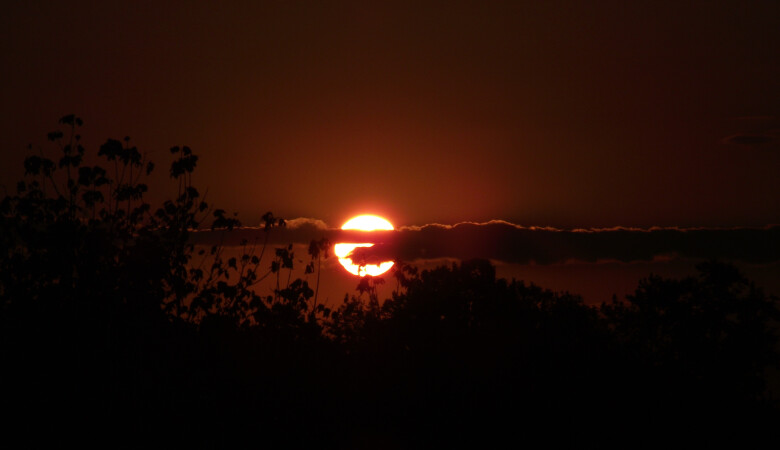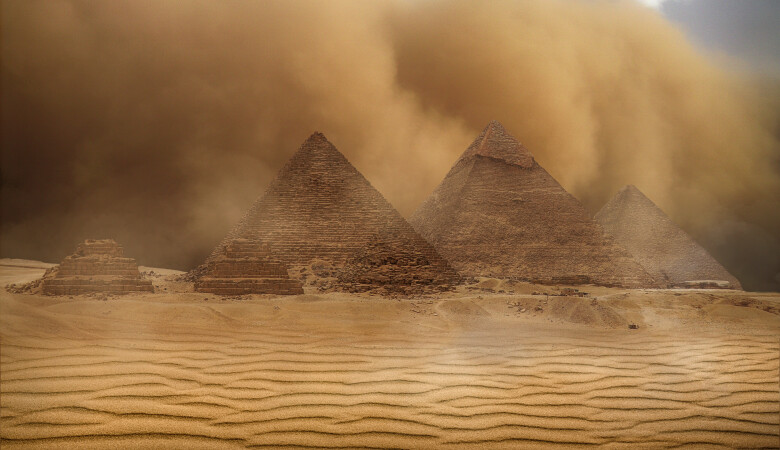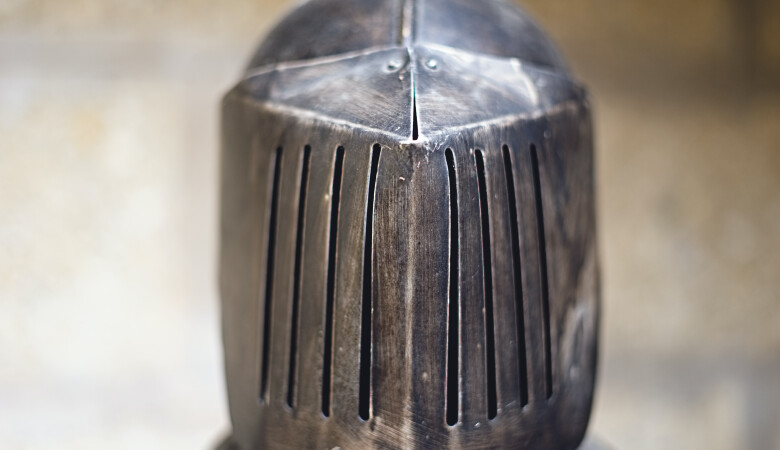Humbled Outcasts Welcomed In (Isaiah Sermon 67 of 80)
October 16, 2016 | Andy Davis
Isaiah 56:1-12
Missions
Pastor Andy Davis preaches a verse-by-verse expository sermon on Isaiah 56:1-12. The main subject of the sermon is to investigate the mixed nature of this world in which suffering and delight in God both come.
- SERMON TRANSCRIPT-
I. Life in a Mixed World: The Wheat and the Weeds
So as we resume this morning, our study in the book of Isaiah, we come immediately to Isaiah 56, and next time also Isaiah 57, and I'm only doing Isaiah 56 today, but in these two chapters we're going to see a rhythm going back and forth between the righteous and the unrighteous, between the wise and the foolish, between what Jesus would call in one of His parables, the wheat and the tares of the weeds, between the wheat and the weeds. Friends, we really do live in a mixed-up World and it seems more evident as time unfolds here in our country. And Jesus told a parable about the mixed-up nature of our world, spiritually in Matthew 13, the Parable of the Wheat and the Weeds, he described the kingdom of heaven in this way like a Man Who sowed good seed in his field. But at night while everyone was sleeping, an enemy came and sowed weeds among the wheat and then went away and then when the wheat sprouted and formed heads and the weeds became evident.
And his servants came to him and said, "Sir, didn't you sow good seed in your field? Where then did the weeds come from?" And the owner of the field said, "An enemy did this." servant said, "Do you want us to go and pull them up?" He said "No… because while you are pulling the weeds, you may root up the wheat with them. Let both grow together until the harvest. At that time I will tell the harvesters: First collect the weeds and tie them in bundles to be burned; then gather the wheat and bring it into my barn."
Now, Jesus in interpreting the parable said, "The field is the world, and the good seed stands for the sons of the kingdom. [We will call Christians] The weeds are the sons of the evil one, and the enemy who sows them is the devil. The wheat and the weeds grow together in close proximity, side by side. We live life together, but in the end, we will be separated one from another. And the righteous will go into the kingdom of heaven, but the wicked will be burned up with unquenchable fire in hell. "The harvest is the end of the age, and the harvesters are angels. As the weeds are pulled up and burned in the fire, so it will be at the end of the age. The Son of Man will send out his angels, and they will weed out of his kingdom everything that causes sin and all who do evil. They will throw them into the fiery furnace, where there will be weeping and gnashing of teeth."
Our Decaying Orbit with the Surrounding Culture
Now, this mixed existence that we experience as Christians is part of what makes this life so difficult. It's difficult for us but friends, it's hardly a new phenomenon. It's been going on a long time. Isaiah saw the same thing in his day. And we're going to see in the rhythm of these two chapters Isaiah 56, and then next time Isaiah 57. As Isaiah goes back and forth between the wheat and the weeds. We're going to look at two of those aspects this time and then next time more. One of the great challenges for us as we come to Isaiah is to try to understand the prophet in his own day, in his own language, his own words, his own setting, but then also see the timeless eternal vision of God, the words of God to every generation of God's people who don't live exactly when Isaiah lived but that timeless message that goes on through all generations.
So we're going to see Old Covenantal type language here in Isaiah 56, but we're going to see principles that must be only fulfilled through the New Covenant and through the timeless message of Christ across every generation. He's going to speak clearly about those that are outsiders that would have been excluded in the Old Covenant being welcomed in and worshipping with God, as you heard in the text. He's also going to speak clearly about the great wickedness of Israel's Watchmen, of their shepherds, their leaders, and how they were living self-indulgent lives of feasting and following Canaanite religions.
Now, these things happened, I think, right before the exile to Babylon. And so he's going to use language speaking about the sins that led to the exile to Babylon, and then speak about the re-gathering of Jews coming back in, and all of that is relevant to Isaiah's immediate circumstance. But if you look bigger, I think, they all pre-figure the in-gathering of people all over the world into the church of Jesus Christ through faith in Christ. So you've got to hold your mind in both, in both worlds, Isaiah's world and then the world that we live in today.
Now, let's speak for a moment about the world that we live in today. I said that it's pretty obvious it's getting more obvious all the time, that we live in a mixed-up world, that we live side by side with people who do not love and cherish Jesus Christ as we do. And their lifestyles make it very plain that they do not cherish God's word, the way we do, and the fact that they are living out their rebellion against God, and unbelief right in front of us, right around us makes our lives far more difficult. Jesus knew that in the Parable of the Wheat and the Weeds. This is a mixed-up world. And for us as American Christians, it's especially challenging, because we live in a time in which we can look back where Christianity had a direct influence on our culture, on our government, our politics, on our lives very directly, especially here in the South, in an area that we used to call the Bible Belt, where the history of the saturation of the gospel and the influence of Christianity and culture was more evident. And government, not just here in the south but throughout the country, a little more supportive of Christianity used language that was taken from the Bible, public officials frequently sought days of fasting and prayer to the God of Heaven.
Christianity was directly held in honor in government schools, and in the marketplace. Judeo-Christian values, you've heard that phrase so-called were honored in the schools and in public culture. There was a Christian ethic behind most of the laws of our country, even what became eventually known as misguided laws like prohibition had a very strong Christian basis in a Christian root. There was a strong church backing to the damage that alcohol did and that's what led to prohibition.
However, as American citizens, we have to realize that the documents which established our nation such as the Declaration of Independence, the Constitution, Bill of Rights, are in no way overtly Christian, keyword being, "overtly." None of these documents mention Jesus or Christ or Christianity or the Trinity or salvation.
The anti-establishment clause which says that the federal government will set up or establish no religion for the people, clearly means we're not overtly Christian, we're not establishing and clearly revering Jesus as King of Kings and Lord of Lords, and the American government never have. Yet we're well aware of how influential Christianity was in the lives of people who wrote those words, in the lives of those who governed according to their principles. In many cases, they were clearly Christian people in other cases not so. And yet for all of that, the general esteem with which Christianity has been held here in America is clearly a decaying orbit and I believe it's going to get worse, not better. I think it's going to become harder and harder to be clearly Christian in America. It's going to take courage, and it's going to take perspective, we need to understand what's going on. We live in a mixed-up world. We're going to be surrounded by unbelievers, they're going to be living out their unbelief in front of us. And friends for us this is a tremendous opportunity for the gospel. It's a chance for us to show the light in a very dark place.
Alan Cooperman who is a director of religious research for the Pew Foundation said this, "Overall, there are more than four... "Listen to this, "More than four former Christians to every convert to Christianity in this country." So what that means is there are more... A four-to-one ratio, of those that are renouncing a previous allegiance to Christianity, then there are those that are saying that they are taking on a new allegiance to Christianity. Four to one. A Newsweek poll says that there's a great rise in the unaffiliated group, sometimes called the religious nones. Now, you shouldn't think like a Roman Catholic nun. N-U-N. It's more that you answer in the poll, religious affiliation none, none. The rise of the nones, it's happening more and more in our country, it's accelerating, especially among what's called the millennials. So that's the younger generation they're coming into their 20s, or just post-college, etcetera. More than 35% of that group of people are unaffiliated with any religion at all.
So that's what we're looking at. And issues that we've been very well aware of that have been pressing on the consciences of evangelicals, like abortion and gay marriage and now especially in our state, transgender bathrooms and the whole issue of transgender-ism, have revealed I think the decaying nature of the relationship between biblical Christianity and American culture. So we're in for a rocky ride, I think. And frankly, I think we're in for the same rocky ride that most of our brothers and sisters in Christ around the world have been experiencing every day of their lives. Brothers and sisters in China and Muslim countries or in other places, even in atheistic West, like in the Czech Republic other places where it's just much harder to live out a Christian life. They've known about this all their Christian lives. And so we're going to be experiencing that more and more. What we need then is we need to turn to the word of God, as never before, and find out what God is doing in the world. And derive hope and strength and purpose from that.
And I think it's a great time for us to be turning back to Isaiah, and looking at and picking up where we were. We got up to Isaiah 55. And let me just give a little bit of review on the first 55 chapters of the book of Isaiah. No I'm not going to do that. Starting in chapter one, no that would take a while. But what I actually want to do is zero in on the central theme, I think of the entire book of Isaiah, and really of the whole Bible, and that is the way that the book of Isaiah, reveals Christ the savior. And we've been following that magnificently in the book of Isaiah with an individual called the suffering servant. So look with me at Isaiah 42. I'm just going to trace this out very quickly. Isaiah 42, we're introduced to the servant of the Lord, verse one, "Behold my servant whom I uphold my chosen one in whom I delight, I will put my Spirit on Him and He will bring justice to the nations. He will not shout or cry out, or raise His voice in the streets. A bruised reed, He will not break, and a smoldering wick, He will not snuff out. In faithfulness He will bring forth justice. He will not falter or be discouraged, until he establishes justice on earth. And in His law, the islands will put their hope."
Friend just reading those words, I get happier and happier the more I read. This is Jesus, Matthew 12 says very clearly Jesus. He is the suffering servant, who comes to bring justice and righteousness to all the Earth, but who advances His kingdom in a very gentle tender loving way. He doesn't quarrel or cry out in the streets. That's not... He's not a rabble rouser, or a rebel or something like that. He just proclaims justice and tenderness and mercy. He doesn't destroy broken-hearted weak sinners, but He binds them up and saves them. Isaiah 42. Then if you look at Isaiah 49, we have the servant of the Lord, Isaiah 50 portrays Him. Let's start with Isaiah 49, especially verse six. This is the Lord, speaking to the servant of the Lord says, “And now the Lord says, he who formed me in the womb to be Him servant to bring Jacob back to Him and gather Israel to Himself for I'm honored in the eyes of the Lord and my God has been my strength. 'It is too small a thing for you to be my servant, to restore the tribes of Jacob and bring back those of Israel, I have kept. I will also make you a light for the Gentiles that you may bring my salvation to the ends of the earth.'"
So here's the servant of the Lord, and it's too small to work for Him to be just Israel's savior, Israel's Messiah. God has bigger plans than that for the servant of the Lord. And that is to bring salvation to the ends of the earth. To restore and bring back even Gentiles. He is the light for the Gentiles. Isaiah 50. The servant of the Lord is revealed as clearly a suffering servant. He doesn't hide His face from mocking and spitting or His back from being beaten. He's going to pay a price to redeem sinners in the world. Then you get to Isaiah 50, 52 and 53, if you look at Isaiah 53, just go right in 53:6. Isaiah 53:6, 53 five and six, let's do that. "He was pierced for our transgressions, He was crushed for our iniquities, the punishment that brought us peace was upon Him, and by His wounds we are healed. We all like sheep have gone astray. Each of us has turned to his own way, and the Lord has laid on Him, the iniquity of us all."
So that's a substitutionary atoning work of Jesus. We are no better than those that are living sinful lives around us, no better than them at all. We all have sinned and fall short of the glory of God, and God has laid on Jesus, the suffering servant, the iniquity of us all. He is our substitutionary atonement. He was pierced for our transgressions. This is the Gospel, and Isaiah 54 makes it plain. I'm not going to go through that chapter. But that Zion, the people of God, the tent that takes in the people of God needs to get a lot bigger, and larger tent make it bigger. There's going to be a lot more people coming in. And then in Isaiah 55, there's this beautiful invitation, "Come. All you who are thirsty, come to the waters. And you who have no money, come buy and eat, come buy wine and milk without money and without price. Why spend yourselves on what doesn't satisfy?"
And then in 55:6, he says so beautifully, "Seek the Lord while He may be found, call on Him while He is near. Let the wicked forsake his way and the evil man his thoughts. Let him turn to the Lord, and he will have mercy on him and to our God, and he will abundantly pardon." So this is the focus, and this is right where we're at in Isaiah 56. Now, here's the thing. With the wheat and the weeds, some people are going to be drawn in by that beautiful message of Christ crucified, resurrected, salvation offered freely to any who repent and believe. They're going to come, and they're going to feast from all over the earth. And others are not going to accept it. They're going to have a hard hearts. They're going to live out their rebellion to the end of their days, and they're going to make life miserable for Christ's people. That's just what's going to happen. And so we have this mixed-up experience. So that brings us now to Isaiah 56.
II. The Wheat: Humble Outcasts Welcomed In (vs. 1-8)
Now, as we look at verses 1-8, we see the effect of the Gospel going to people who in the old covenant would have been excluded. We're going to talk about that, but God has this beautiful, magnificent salvation plan that he fashioned as we learned clearly from the book of Ephesians. He fashioned before the foundation of the world. From before the foundation of the world, He set his love on us in Christ, and He poured out spiritual blessings on us when we were still unborn in his own mind and heart. In Christ, he did us every good that we would ever need. Even long before he said, we were created. Before he even said, "Let there be light," God had this salvation plan. And that plan was to redeem us by the blood of Christ. Now, the redemptive plan of God began when Adam and Eve fell into sin. There's no need for redemption before that. When Adam and Eve ate from the tree of the knowledge of good and evil, they were expelled from the Garden of Eden. They were kicked out. They were excluded. They're on the outside. And God put an angel there with a flaming sword flashing back and forth to guard the way to the tree of life. So they would not be permitted to re-enter Eden and eat from the Tree of Life.
So I just want you to picture that in your mind because we're going to talk about people excluded, but I want you to include yourself in that category. We were all of us kicked out. As a human race, we were excluded from heaven. We are excluded from fellowship with God because of our sins. We're on the outside. Now, in redemptive plan, the redemptive plan of God, God chose out a specific people, the Jews. And he did it with the call of Abraham. At that point, his name was Abram. In Genesis 12, God called Abram out of Ur of the Chaldeans and said, "Leave your country and your people, and go to the land I will show you." And he says this, "I will make you into a great nation, and I will bless you; I will make your name great, and you will be a blessing. I will bless those who bless you. Whoever curses you, I will curse. And all peoples on earth will be blessed through you." So the Jewish nation then became a launching pad for the salvation of the world.
God intended to save his chosen people, that he chose in Christ before the creation of world to save them through a Jewish plan of salvation, ultimately through a Jewish Savior as Jesus said to the Samaritan woman, "Salvation is from the Jews." And so God brought Israel up out of Egypt, up out of the promised land... Up out of Egypt into the promised land, through the Red Sea, brought them into the promised land. And, at the mountain of the 10 Commandments, he said this to them. He said, "If you obey me fully and keep my covenant, then out of all the nations, you will be my treasured possession. Although the whole Earth is mine, you will be for me a kingdom of priests and a holy nation." So what that means is, "I'm going to bless you, oh Jewish people, so that you can be a blessing to the whole earth." That was God's purpose.
Psalm 67 captures it very, very well. It says, "May God be gracious to us and bless us and make his face shine upon us, that your ways may be known on Earth, your salvation among all nations. May the peoples praise you, Oh God, may all the peoples praise you." The peoples are the Gentiles, the non-Jewish nation. Oh God, be gracious to us, the Jews, so that we might be a blessing to the Gentiles. That was the idea of the concept. And we've seen that in Christ, that desire is fulfilled. Jesus is the son of Abraham. He's the Son of David, He is Jewish, and he is the savior of the earth.
Now look at Verse 1. "This is what the Lord says, 'Maintain justice and do what is right for my salvation is close at hand, and my righteousness will soon be revealed." That's powerful. "My salvation is drawing near now. My righteousness is coming close." Isaiah lived six centuries before Jesus was born. But in God's mind, a day is like a 1000 years, and a 1000 years is like a day. The time for salvation is drawing near. Now, we could say that the prophet might have been talking about the deliverance from the exile of Babylon, and I think that might be part of what he had in mind. The deliverance from Babylon is a picture though of the greater deliverance that Jesus works for all of us from sin, from the captivity of sin.
And so, we could say that both of them are in His mind. The Jews are going to come back from Babylon, they're going to rebuild the destroyed city of Jerusalem, they're going to live there, and that's an important thing, but that's not the fulfillment of the glorious words of Isaiah 56, not at all. Something bigger is going to happen. The Jewish nation that would be established under Ezra and Nehemiah would continue living under the old covenant, under the laws of Moses. They would continue to offer animal sacrifice, to keep the Sabbath regulations, they would continue to follow the old covenant. But all of this has in view the day in which those old covenant strictures would be abolished, would be removed. And so, godly Jews are described here, in verse one and two. This is what the Lord says, "Maintain justice and do what is right, for my salvation is close at hand, and my righteousness will soon be revealed. Blessed is the man who does this, the man who holds it fast, who keeps the Sabbath without desecrating it, and keeps his hand from doing any evil." This is the call for the people of God, the Jews of Isaiah's day, or those that would come back under Ezra and Nehemiah, the godly Jewish nation, to live godly, upright lives under His law, as they waited for His redemption.
The nation had been wicked, they've been sent into exile, disobeying God's laws, they had plundered the weak and helpless, they'd taken advantage of the widow and the orphan, they had shed innocent blood, they'd been sexually immoral, they'd been idolaters, that had led to the exile. "Okay, when I bring you back in, lead righteous, godly lives now, and in that way, my salvation will draw near, the nation will be able to continue." Now, for us as Christians, we have to hear this in a Christian new covenant sort of sense. We're not waiting for the restoration from Babylon, that's done, that's in the rearview mirror. What are we waiting for? We're waiting for Jesus to come back. We're waiting for the second coming of Christ. Well, what kind of lives should we live while we wait for that? 2 Peter 3 makes it very plain. It's going to be very similar type of language here. "Since everything will be destroyed in this way, what kind of people ought you to be?" Second Peter 3:11-12. "You ought to live godly and upright lives as you look forward to the day of God and speed its coming." So, we ought to be holy and we have to do evangelism and missions, that's what that verse says. And then, Second Peter 3:14, "So then, dear friends, since you're looking forward to this, make every effort to be found spotless, blameless and at peace with Him." That's Peter writing to new covenant saints.
We get the same kind of language here, in Isaiah 56, one and two. "Live godly, upright lives as you wait for righteousness of God to come near. As you wait for the next event in redemptive history to come, live godly and upright lives," that's what the call is here.
Godly Outcasts Welcomed
Now, in verse three, we see godly outcasts welcome. Now, this is where it gets really fascinating. Look at verse three. "Let no foreigner who has bound himself to the Lord say, 'The Lord will surely exclude me from His people.' And let not any eunuch complain, 'I am only a dry tree.'" So now, we're looking at foreigners, by that I mean, the text means Gentiles, outsiders, and eunuchs, eunuchs. It speaks of people, then, that are categorically excluded in the old covenant from the assembly of the Lord. They're out, they're outsiders, they can't come in. They're not allowed to come in. Eunuchs are specifically mentioned as excluded in every case in Deuteronomy 23:1. And then, specific Gentiles are excluded in Deuteronomy 23:2 and Deuteronomy 23:3. For example, 23:2 says, "No one born of a forbidden marriage or any of his descendants may enter the assembly of the Lord, even down to the 10th generation." And then, verse three of Deuteronomy 23, "No Ammonite or Moabite or any of his descendants may enter the assembly of the Lord, even down to the 10th generation."
These are what we would call aliens and strangers, they're outsiders, they're excluded from fellowship with the people of God because of the law. Now, we believe in Christ, all of those exclusions are abolished, they're removed. We believe that this chapter foresees the day when those exclusions are taken away. "Let no foreigner say, 'I'm excluded.'" "I'm no longer excluded." Why not? Because Jesus came and fulfilled the old covenant and brought in with His blood a new covenant. And in that new covenant, there are no such restrictions. We saw this plainly in Ephesians chapter 2, let me read that again. By the way, I'm not going back to Ephesians, I just can't seem to let it go. I love the Book of Ephesians. But Ephesians 2:11 and following is the clearest passage on the fact that these exclusions are being removed. Says in Ephesians, 2:11-12, "Therefore, remember that formerly you who are Gentiles by birth and called 'uncircumcised' by those who call themselves 'the circumcision.' Remember that at that time you were separate from Christ, excluded from citizenship in Israel, and foreigners to the covenants of the promise, without hope and without God in the world." That's how it used to be, oh Gentiles, how you used to be excluded by the law of Moses. Deuteronomy 23.
The law of Moses kept such people out of the assembly of the Lord. It was what Paul called a barrier, a dividing wall of hostility. You couldn't come in. Yet through Isaiah the Prophet, even centuries before Jesus was born, there was foretold the day when those restrictions would be removed. The barrier would be taken away, and you would be allowed, as a Gentile, an uncircumcised Gentile, to enter the assembly of the Lord. You'd be welcome to come in. Now, God doesn't allow these outsiders in without transforming them. They have become radically different people; God has cleansed them of all their pagan defilements, He's washed them clean by the blood of Christ, they're made new in their hearts. John the Baptist said that God is able out of this stones to raise up children for Abraham, and so He has done. He has removed our hearts of stone and given us a heart of flesh. That's the condition for coming in now: Transformation by the Spirit of God.
Ezekiel put it this way, about outsiders coming in. He said, "I will sprinkle clean water on you, and you will be clean…" Ezekiel 36:25 and following, "I will cleanse you from all your impurities and from all your idols, I will give you a new heart and I'll put a new Spirit in you and I will remove from you the heart of stone and I will give you a heart of flesh and I'll put my Spirit in you and I will move you to follow my decrees and be careful to keep my laws." That's the transformation of the new covenant, the transformation, the change wrought by the spirit of God, or again in Ephesians 2, 13-15, "but now in Christ Jesus, you who were once far away have been brought near through the blood of Christ, for He himself is our peace, who has made the two one," [Jew and Gentile] and has destroyed the barrier, the dividing wall of hostility, by abolishing in His flesh the commandments and regulations that kept us out his purpose was to create in himself one new man out of the two, thus making peace." This is the redemptive work of Christ.
The Rewards of Inclusion
Now, look at the rewards of being included say, "Well what do I get if I'm included?" Look at it, it's beautiful, these are rich blessings for those humble transformed outsiders. Each of these are carefully described before, the blessings are listed. The fact is you have to be changed in order to qualify, not every eunuch is blessed, not every outsider is brought near, that's not true. What does it say? Verses 4-5 "This is what the Lord says: 'to the eunuchs who keep my Sabbath, and choose what pleases me, and hold fast to my covenant, to them I will give within my temple and its walls, a memorial and a name better than sons and daughters. I will give them an everlasting name that will not be cut off." So the conditions are covenantal language. Now in Isaiah's day that was old covenantal language; keep the Sabbath, do the sacrificial system, all that. We know that that's just a type and a shadow of the salvation, Jesus came to bring for us in the New Covenant. The requirement is simple. Believe in Jesus Christ as your Lord and Savior, trust in Him. Repent of your sins, believe in Christ and you will be brought near, you'll be given a new heart, the Holy Spirit will change you from the inside out, you'll be transformed, and you will meet the requirements and look at the rewards a place in God's temple, a spot within its walls a secure permanent place of honor, and everlasting name that will never be cut off, never be forgotten. It's amazing.
Now this is very similar to the promises made to the church of Philadelphia in Revelation 3:12. Listen to this. "To him who overcomes I will make a pillar in the temple of my God. Never again will he leave it. I will write on him the name of my God. And the name of the city of my God, the new Jerusalem, which is coming down out of heaven from my God, I will also write on him a new name." That's very similar to Isaiah 56, isn't it? So what's happening, we're talking about heaven that's coming, the new Heaven, the new Earth, the new Jerusalem, if you become in Christ brought near, transformed from the inside out, God is going to adopt you as one of his sons or daughters, he's going to give you an everlasting name better than a biological son or daughter. You'll be his forever and ever. Biological names are forgotten, if you don't think so read First Chronicles and all those genealogies you know exactly, who are these people? If the Lord doesn't return any time soon, within three or four generations probably, no one on Earth will know your name, no one. Everyone will forget you, everyone you knew will be dead, long gone. That's just the way of the earth, that's the way of death. This is talking about an eternal remembrance. An eternal relationship. This is adoption by an eternal father, and the giving of a name that you will have forever and ever. And it will never be forgotten. That's eternity, that's heaven, that's a new Jerusalem.
And it must refer to that spiritual temple as we've talked about again and again, in Ephesians 2, that new and living structure in Ephesians 2, 1 Peter 2, we are all living stones built into that habitation, that eternal habitation. We will receive a name and a place in that forever and ever if we draw near. And in heaven we will be able to offer sacrifices. 1 Peter 2:9-10, says "You are a chosen people, a royal Priesthood, a holy nation, a people belonging to God that you may declare the praises of Him who called you out of darkness into His wonderful light. Once you were not a people, but now you are the people of God." Think about that; once you were outsiders now you're inside, once you had not received mercy, but now you have received mercy. We are drawn in and we can offer up sacrifices, of praise to God.
Ultimately in heaven, there's going to be a multitude greater than anyone can count from every tribe, language, people, and nation. And they're going to be drawn near Revelation seven. They're going to be given white robes and palm branches and they're going to cry out salvation belongs to our God who sits on the throne and to the lamb, and they're going to stand listen to this revelation 7:13-15 this multitude greater than any cookout Where are they from? They're from the Great Tribulation, they've washed their robes and made them white in the blood of the lamb, therefore listen to this Revelation, 7:15, they are before the throne of God and they serve Him day and night in His temple so that this is the language of Isaiah 56. The eunuchs, who are brought near, the outsiders who are brought near, we are given a place in the eternal temple of God and a name better than anyone could ever have in this world and forever we will bring our sacrifices and offerings in praise and they'll be accepted. That's what Isaiah is predicting.
Verses 6 and 7, "Foreigners who bind themselves to the Lord, to serve Him, to love the name of the Lord and to worship him all who keep the Sabbath without desecrating it, and who hold fast to my covenant, these I will bring to my holy mountain and give them joy in my house of prayer. Their burnt offerings and sacrifices will be accepted on my altar for my house will be called a house of prayer for all nations." Now, the conditions have to be met, you have to repent and believe and be drawn near in the new covenant, you have to bind yourself to the Lord by faith, you have to yearn to love him and to serve him and to follow him and to love the name of the Lord and to worship him. The Sabbath, I believe, is fulfilled in Christ. But it's also commemorated in the Lord's Day assembly around the world of Christians who come on the first day of the week to celebrate, not looking back at the old creation, but looking ahead to the new creation, first day of the week when God is going to make everything new.
So, we assemble together and so we get all of these blessings and he says, "My house will be called the house of prayer for all nations." You know that Jesus quoted this, he was talking about Herod's Temple, a temple built by a wicked man, but he honored it as what it was, a beautiful type and shadow and picture of a future reality, a heavenly reality, a heavenly temple, when people from all nations would be welcomed, and would pray and worship God in that heavenly temple, and that now the temple of Herod's day, it should be a place where they're praying toward that end and where Gentiles are welcomed to worship the true and living God in light of the new covenant, Jesus had come to bring. Instead what did he find? Corruption, money changers, people trying to make money out of religion and it enraged him. And so he sat down and he braided a whip, and he overturned the benches of the money changers, and he drove out the all of the animals and he cried out in the words of Isaiah 56. "My house will be a house of prayer for all nations." He's quoting Isaiah 56 as he cleanses the temple. Now eventually he would will that that temple be physically, completely destroyed. Its days were over, it was obsolete, the Old Covenant was done, and so the Romans finished it off.
New Exiles Gathered In
But the vision was still there, that in the heavenly realm there would be, all nations assembled to worship God and there would be in verse 8, new exiles drawn and look at verse 8, "The sovereign lord declares, he who gathers the exiles of Israel. I'm going to gather still others to them besides those already gathered." I'm going to do a kind of a second re-gathering. So we're going to bring in the Jews from Babylon, and they'll be re-gathered but then I'm going to do a second re-gathering I'm going to gather other exiles and bring them in. Well, who are they?
Well, In Isaiah 11:12, it says that God "will raise a banner for the nations and gather the exiles of Israel, he will assemble the scattered people of Judah from the four corners of the earth." So there's this banner raised for the Gentiles and a gathering of people from all over the world and then even more plain in John 11:51-52, it said that "Jesus would die for the Jewish nation and not for that nation only, but also for the scattered children of God to bring them together and make them one." Non-Jews, who are called the scattered children of God, they are the elect, chosen before the creation of the world, they would be gathered in Jesus's name, to one place. That's what verse 8 is talking about. I'm going to gather still others beyond those already gathered.
So Verses 1 through 8 show the delights of the plan of salvation, for humble people once excluded, for exiles scattered all over the Earth, rich blessings of fellowship an eternally secure place in God's eternal temple where you will worship forever and ever. My question to you is, are you included or are you still an outsider? Are you on the outside looking in or have you been drawn in through faith in Christ? That's what you have to ask. This is visionary Old Testament prophetic language, let me speak quite plainly. Do you know yourself to be a Christian? Do you know yourself to be forgiven through faith in Christ? Have you been drawn in through faith in Christ, having repented of your sins have you found forgiveness through Christ? Are you spiritually now offering sacrifices to God, are you spiritually feasting on Christ? Are you looking forward to the day when you are literally sit at table with Abraham, Isaac, and Jacob in the kingdom of heaven. Is that you?
If not, If you know yourself to be an outsider believe that God brought you here for this moment and I'm calling on you while there's time, call on the Lord while he is near. Forsake your evil ways and find forgiveness in Christ.
III. The Weeds: Self-Indulgent Leaders Devoured (vs. 9-12)
The rest of the chapter deals with weeds, deals with people who hear that kind of invitation, hear that kind of gospel presentation and don't believe. Now they're a special category. They are leaders, they are the watchmen of Israel, but they're wicked, look at them described. They're self-indulgent leaders verses 10-12. "Israel's Watchmen are blind, they all lack knowledge they're all mute dogs, they cannot bark, they lie around and dream, they love to sleep, they are dogs with mighty appetites, they never have enough, they are shepherds who lack understanding, they all turn to their own way, each seeks his own gain. Come, each one cries, let me get wine, let us drink our fill of beer and tomorrow will be like today or even far better."
Well, final paragraph to this chapter is a judgment on the watchmen of Israel. I believe it's speaking to the leaders of the Jewish nation, their kings, their prophets, their warriors, their leaders who were given positions of power and authority in the nation to serve the people not to take advantage of them or to fleece them. Israel's watchmen are the guardians of the nation, those who stand on the walls, to protect her from danger and from slaughter in the night. They are called on therefore, to deprive themselves of sleep during the night. What good is a sleeping watchman? They're supposed to be up on the walls, but they're asleep. They're supposed to be sacrificing themselves, they're supposed to be alert and courageous and wise and self-sacrificial. But instead these watchmen are deplorable.
Ezekiel the Prophet was called a watchman for Israel. He said, "Son of man, I have made you a watchman for the house of Israel; so hear the word I speak and give them warning from me." So that picture is a sleeping city, a walled fortress, and there's a possibility of an attack in the night. The watchman's job is to stand on the walls and warn the sleeping people, "Get up, there's danger." And so what God says to Ezekiel the watchman, he says, "When I say to a wicked man, 'You will surely die,' and you do not warn him or speak out to dissuade him from his evil ways in order to save his life, that wicked man will die for his sin, and I will hold you accountable for his blood. 19 But if you do warn the wicked man and he does not turn from his wickedness or from his evil ways, he will die for his sin; but you will have saved yourself." So that's what a watchman does. Now, these watchmen are deplorable, they are blind. I mean, think about that, what good is a blind watchman? Just ponder that for a while. They are ignorant, they lack knowledge, they are mute dogs. Now, what good is a watch dog that can't bark?
Isaiah calls them lazy dogs. They lie around and love to sleep, like the sluggard, they can't even pull their hand out of the dish and bring it to their mouth. They can barely rouse themselves out of bed, they're lazy. He calls them dogs with mighty appetites. Like Paul says in Philippians 3, "Their God is their stomach." They love a good meal. They love to feast. They're living for themselves, they're greedy. They never get enough. And not only that, they think the feast will never end. I like the NIV on verse 12, I really do. "Come, each one cries, let me get wine, let us drink our fill of beer. And tomorrow will be like today or even far better." That's an interesting translation, I think it's a good one. In other words, I think things are just going to get better and better. Things are really good for us right now, but they're going to get better and better.
No fear of the Lord, no fear of impending judgment, just complacent, lazy comfortable expectation that life, prosperous comfortable life, is just going to keep on going the way it always has. Well, verse nine speaks of a different kind of feast, it's a different kind of feast, and these watchmen are actually invited to it. But look at it, "Come all you beasts of the field, come and devour, all you beasts of the forest." So Israel's watchmen are invited to the feast, but not as honored guests, but actually as the food. They're going to be invited to be devoured by the beast, they're going to be judged by the wrath of God. This very much reminds me of Revelation 19, when there's the armies of the Earth assembled to fight against Jesus in His second coming glory. And it says there in Revelation 19:17, it says, "I saw an angel standing in the sun, who cried in a loud voice to all the birds flying in mid-air, 'Come, gather together for the great supper of God, so that you may eat the flesh of kings and generals and mighty men, of horses and their riders, and the flesh of all people, free and slave, small and great." And so the birds came and feasted on their flesh. It's a picture of terrible judgment from God.
So, simply put, at the end of the world, God is going to separate out the wheat from the weeds. And verses 9-12 give a picture, in very graphic kind of picture form, of the judgment that's going to come on those who live their lives for their stomach, for their flesh, who do not use their positions of influence and authority to glorify God.
IV. Applications
Alright, so applications, I've already given you the most important one. Come to the banquet of Christ while there's time. Feast on him, trust in him. Don't remain an outsider. Be welcomed by faith in Christ into God's holy temple. Accept the gifts that He wants to give you. He wants to adopt you as one of his sons or daughters. He wants to give you a name in his temple that will never end. Accept his conditions, the conditions of the new covenant, they're simple. Confess Christ as your Lord and Savior, repent of your sins, and you will be saved.
Secondly, understand, Christian brothers and sisters, the mixed nature of this world. It is lamentable, we are going to grieve, it's going to cause us trouble, but it's just the reality. It's going to be like this until the end of the world. Look on it as an opportunity. Don't consider yourself superior to any of those that appear to be weeds. That's the whole thing. The reason the servants can't root them up, they can't tell the difference. Saul of Tarsus, what did he look like the morning he was converted? He looked like weeds to me. We just can't tell the difference, we never know what God's sovereign grace could do. We never know. And so, let's look on the wickedness of the people around us as an opportunity to speak the truth in love into their lives and see God save some of them. The weeds make up ISIS as they behead Christians. The weeds make-up anti-Christian college officials who issue edicts and rules that keep Christians from freely sharing the gospel on their college campuses, or professors who use their positions to speak anti-Christian doctrines to those that have to listen to them, or non-Christian government officials, not just in the US but all over the world, who use their positions of power and influence to hinder the work of God in the world. Making bad decisions, and issuing bad judgments, and bad decrees, or even to crush the Gospel overtly.
The mixed up nature of this world is a constant grief to us. It's going to continue, but it's temporary. Some day the Lord is going to purge this world. In the mean time, we're going to have to bear with this suffering that comes from it and to see God use us to win people to Christ. Also, along with that, let's have a deep compassion for those that are lost, let's weep for them. Let's not feel superior to them. Let's, like Paul says, "I have a great sorrow and unceasing anguish in my heart." And Jesus wept over Jerusalem. So ask God to make you a little less annoyed with the weeds, a little less irritated by them, and instead pray for them. Paul says in 2 Timothy 2, "I endure everything for the sake of the elect, that they too may obtain the salvations in Christ Jesus with eternal glory." You know what it is? The elect are surrounded by un-elect. The wheat that hasn't been converted yet, they're surrounded by weeds that are going to pound you as you try to reach the elect. Even the elect themselves are going to treat you badly until they're finally converted. I did the same myself. They're going to beat you up while you're rescuing them from the lagoon. You're going to swim out there, and they're going to beat you up the whole way as you drag them to safety. And then they're going to cry and thank you. But that's what happens. This is the price we pay for being evangelistically fruitful in this world.
Thirdly, a warning to leaders, to watchmen, be faithful. Elders, especially I want to say a word to you who are elders in this church, let us not be anything like the watchmen that are described in this chapter. Do not live for your stomach, do not live for pleasure, do not live for temporary things. I call on me and others to live up to the holiness that this passage talks about. We ought to keep watch over ourselves and the flock of which the Holy Spirit has made us overseers. Richard Baxter in his reform pastor said this, "Take heed to yourselves, lest you live in those sins that you preach against in others. Lest you be guilty of that which daily you condemn. Will you preach God's laws and yet willfully break them? If sin be evil, then why do you live in it? And if it be not, then why do you dissuade men from it? If sin be dangerous, then how dare you venture on it? And if it be not, then why do you tell men so? If God's threatenings be true, then why do you not fear them? And if they be false, then why do you needlessly trouble men with them and put them into such frights without a cause?"
So that's just a warning to all of us who are elders and leaders in spiritual positions in the church, not just in this church, but in any church. I also want to give a similar warning to political leaders. God is going to hold political leaders, senators, congressmen, presidents, elected officials to account for what they did with their position of authority. And if they used their position to hinder the work of God, God is going to judge them.
Finally, a word for missions. Verse seven says, "My house will be called a house of prayer for all nations." I yearn for this church to be on fire for evangelism and missions. That we would be a house of prayer for all nations, for the spread of the Gospel to the ends of the earth. I especially call on home fellowships. When you meet tonight in your home fellowships, be certain you pray for missionaries, be certain you pray for unreached people groups, that you keep your heart extended to the ends of the Earth, where Jesus has believers who have not yet been converted. Move your heart out there in prayer. My house will be called a house of prayer for all nations. Close with me in prayer.































